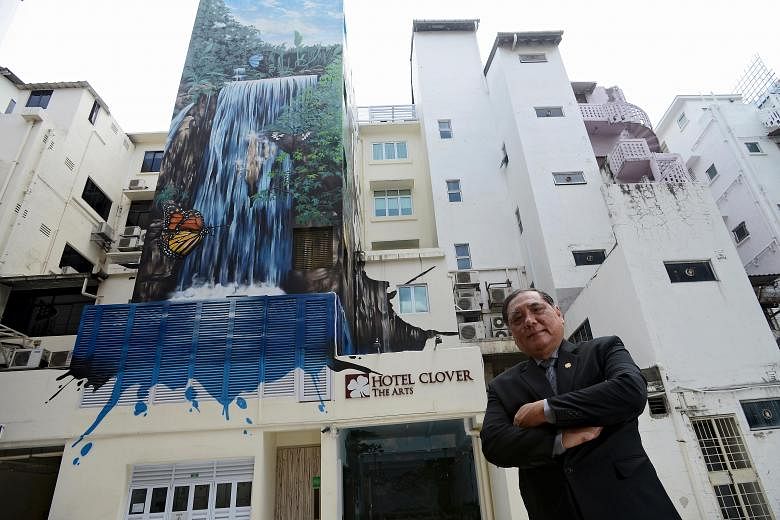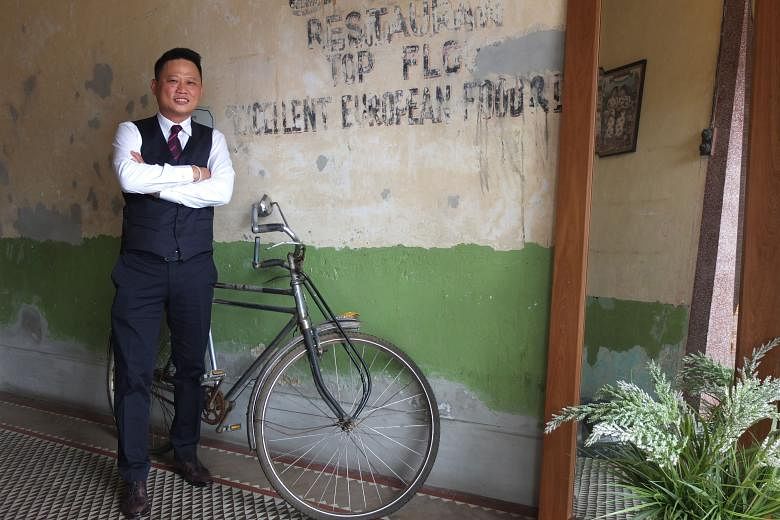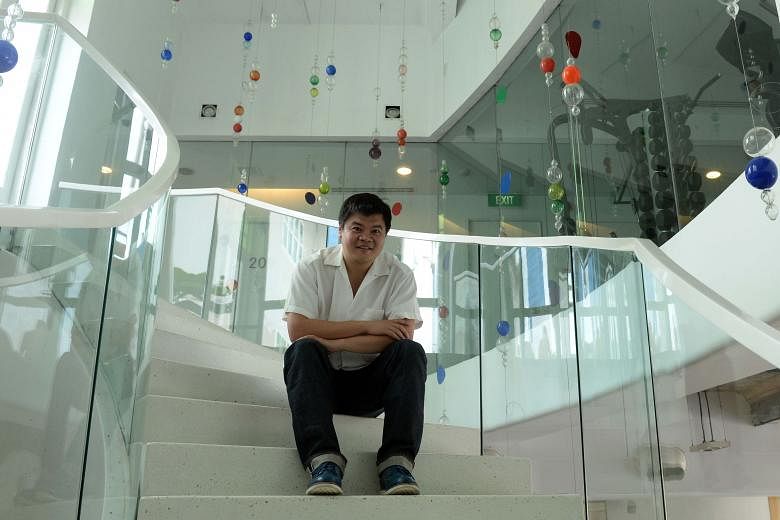It's been a dream few years for boutique hotels here, thanks to events like the F1 Grand Prix and other tourist lures, but challenges are lining up on all sides and forcing owners to make some tough decisions.
Some might need to seek growth opportunities abroad while running a tight ship here.
But it's not all gloom - some operators in heritage sites such as Chinatown still enjoy healthy occupancy rates. Overall, however, the mood is sombre. Rising costs, a tighter labour market, a strong Singapore dollar and a growing supply of hotel rooms are fanning major headwinds for the hospitality sector.
There were 10,530 hotel rooms being built or planned for development islandwide as at the third quarter of last year, according to the Singapore Tourism Board.
JL Asia, which manages Kam Leng Hotel in Jalan Besar and The Porcelain Hotel in Mosque Street, is looking beyond Singapore for growth over the next two years.
The company, which also runs Hotel Soleil near Bukit Bintang in Kuala Lumpur, wants to expand in Malaysia, and penetrate the new markets of Thailand and Japan.
"It is not easy to find a new site in Singapore. Prices of properties have moved forward since 2010, and it is also getting expensive to lease," said chairman Jason Lee.
He said the investment cost was about $300,000 per room based on an average room size of 13 sq m when JL Asia entered the market in 2010. The figure has probably gone up to $800,000 because of pricier materials and land.
JL Asia set up The Porcelain, which has 138 rooms, about five years ago and the 70-room Kam Leng about 18 months later.
Both had occupancy rates of about 90 per cent last year, on a par with 2014, but room rates fell about 5 to 10 per cent last year because of rising competition and the slower market, Mr Lee added.
Room rates average $100 to $180 for Kam Leng and $130 to $230 for The Porcelain.
Mr Lee said more needs to be done to attract visitors, given the challenging outlook and stiff competition for international tourists.
"The casinos have been around for over five years now; the F1 race has been here several years. So there is a need to think of new ideas - maybe more high-profile events or new attractions."
Hotelier and restaurateur Loh Lik Peng also expects some pressure on room rates, "which probably peaked two to three years ago".
He was one of the first movers in the heritage boutique hotel segment here - he opened Hotel 1929 in Keong Saik Road in 2003. He has since sold the hotel, but continues to manage it as well as other signature inns - the New Majestic in Bukit Pasoh Road and Wanderlust in Little India - under Unlisted Collection, where he is a director. He said the three hotels here had "done okay", with average occupancy rates of around 80 per cent despite there being more players in the market.
Unlisted Collection, which also runs hotels in London, Shanghai and Sydney, is unlikely to embark on new investment ventures in the next 12 months. It recently opened The Old Clare Hotel in Sydney.
But hospitality chain Hotel Clover plans to open one hotel here this year, plus one each in Bangkok and Shanghai. The home-grown brand has four hotels in Singapore with a total of 214 rooms.
Group vice-chairman Lee Soon Tai said it would be more active in seeking growth in China and Thailand, and it is also considering Indonesia and Myanmar. He is excited about its project in Shanghai, not far from the upcoming Disneyland.
"There is a slowdown, but there is a huge local market - that's why we are going in," he said, remaining optimistic despite the slowing Chinese economy.
Hotel Clover's outlets in Singapore - located in North Bridge Road, Jalan Sultan, Hong Kong Street and South Bridge Road - have an average occupancy rate of about 80 per cent and average room rates of $180 to $200.
Dr Lee said the company is looking at new business ideas and might set up a "maternity home" - a confinement centre for new mothers who, according to some traditional beliefs, need to stay indoors for a month and have special dietary requirements.
The three boutique hotel operators told The Straits Times that staying nimble and keeping operations lean would be key to weathering the tough times. Initiatives could include outsourcing certain functions such as laundry and having employees take on multiple roles.
"Being boutique hotels, we are more flexible. We can make decisions and change policies easily, unlike the big boys," Dr Lee noted.
Another way to boost productivity is to harness technology. However, the costs involved are usually higher for boutique hotels, as many software packages and systems are designed for large hotels, Mr Loh said.
"You could have remote monitoring of the premises instead of having security guards running around everywhere, or software for rostering of your staff," he said.
For JL Asia and Hotel Clover, having their hotels located in areas where there are plenty of food and entertainment options means they do not need to provide large restaurants or elaborate banquet services, which helps keep staff headcount down.
Heritage hotels also attract local visitors, which helps support occupancy rates. About 20 per cent of the guests at Kam Leng Hotel, for example, are Singaporeans.
Mr Loh said: "I feel there is that resilience in our industry, but we don't take anything for granted. Who knows what's around the corner?"




